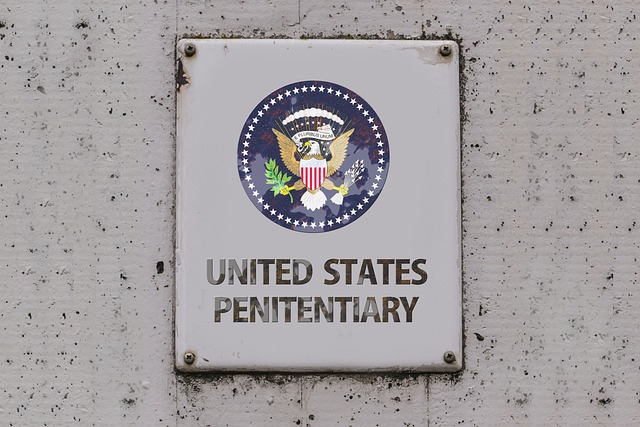Driving under the influence (DUI) not only endangers physical safety but also has severe mental health consequences, including stress, anxiety, and depression. Beyond legal penalties, individuals may seek criminal record expungement after DUI to mitigate these impacts. Mental health awareness is crucial for safe driving practices, especially for those with a history of DUI. Specialized assessments, therapy, and programs enable drivers managing conditions like anxiety or PTSD to regain independence behind the wheel. Integrating mental health support into driver education and rehabilitation, along with criminal record expungement after DUI, promotes safer communities and roads by addressing underlying issues and providing better employment opportunities for those with past mistakes.
Mental health and driving safety are inextricably linked, especially considering the significant impact of issues like DUI (Driving Under the Influence) on an individual’s well-being. This article explores the intricate relationship between mental health and safe driving practices. We delve into understanding DUI, its effects on mental health, and how criminal record expungement after a DUI arrest can be a game-changer for those seeking a fresh start. Additionally, it highlights strategies to support drivers with mental health challenges and emphasizes the importance of promoting mental well-being for safer roads.
- Understanding DUI and Its Impact on Mental Health
- The Connection Between Mental Health and Safe Driving
- Navigating Criminal Record Expungement After a DUI Arrest
- Supporting Drivers with Mental Health Challenges
- Promoting Mental Well-being for Safer Roads
Understanding DUI and Its Impact on Mental Health

Driving under the influence (DUI) is a serious issue that can have profound effects on both physical and mental health. When an individual operates a vehicle while impaired, they put themselves and others at severe risk. The legal consequences of a DUI are well-documented, often resulting in fines, license suspension, and even jail time. However, the impact extends far beyond these penalties, particularly on mental health.
The experience of a DUI arrest and subsequent conviction can lead to increased stress, anxiety, and depression. Individuals may struggle with feelings of shame, guilt, and low self-esteem, which can exacerbate existing mental health conditions or trigger new ones. Moreover, the process of seeking criminal record expungement after a DUI can add additional stress and complexity. Understanding these impacts is crucial in recognizing the need for comprehensive support systems that address both the legal and mental health aspects of such situations.
The Connection Between Mental Health and Safe Driving

Mental health plays a pivotal role in ensuring safe driving practices. Good mental well-being helps drivers maintain focus, make quick decisions, and respond appropriately to road conditions. Conversely, untreated mental health issues can impair judgment, slow reaction times, and lead to reckless driving behaviors. This connection is especially pertinent when considering individuals with a history of DUI (driving under the influence) who often face a criminal record expungement process.
Effective management of mental health conditions through therapy, medication, or support groups can significantly reduce such risks. It empowers drivers to recognize their limitations and take necessary precautions on the road, ultimately contributing to safer highways. Moreover, understanding the interplay between mental health and driving encourages those with concerns to seek help before getting behind the wheel, thereby mitigating potential hazards on public roads.
Navigating Criminal Record Expungement After a DUI Arrest

After a DUI arrest, many individuals face not only legal consequences but also the challenge of managing their criminal record. In some jurisdictions, there’s an opportunity to pursue criminal record expungement after a DUI conviction. This process allows individuals to have certain criminal records sealed or erased, offering a fresh start and potentially easing future employment or housing barriers.
Navigating this procedure requires careful consideration and legal guidance. The eligibility criteria vary by state, and the specific steps involved in filing a petition for expungement can be complex. It’s crucial to understand which charges qualify, gather necessary documentation, and present a compelling case. Legal aid organizations and attorneys specializing in DUI cases can provide invaluable assistance throughout this process, ensuring individuals make informed decisions regarding their future.
Supporting Drivers with Mental Health Challenges

Supporting drivers with mental health challenges is an essential aspect of road safety that often goes overlooked. Mental health conditions can impact a person’s ability to drive safely, leading to concerns about their fitness to be behind the wheel. However, with proper support and accommodations, individuals managing disorders like anxiety, depression, or PTSD can become responsible and confident drivers again.
Many states offer programs dedicated to helping such drivers through specialized assessments, therapy, and rehabilitation. One significant aspect of aiding these drivers is expunging their criminal records, especially after a DUI charge. Criminal Record Expungement after DUI allows individuals to clear their past mistakes, gain access to better employment opportunities, and most importantly, regain the chance to drive legally and safely. This process can be life-changing, enabling those with mental health challenges to rebuild their lives and regain independence on the road.
Promoting Mental Well-being for Safer Roads

Promoting Mental well-being is a crucial step towards fostering safer roads and communities. With a focus on addressing underlying issues, we can significantly reduce instances of distracted or impaired driving. Mental health challenges, if left unaddressed, may lead to dangerous behaviors behind the wheel. Therefore, integrating mental health support systems into driver education and rehabilitation programs becomes essential. This involves creating awareness about recognizing signs of distress and providing accessible resources for those in need.
In the context of individuals with a criminal record, particularly after a DUI (Driving Under the Influence), offering specialized support can be transformative. A criminal record expungement after DUI can be a game-changer, allowing individuals to reintegrate into society and regain control of their lives. This process not only opens doors for better employment opportunities but also encourages participation in mental health programs tailored to help them develop coping strategies, ensuring safer roads for everyone.
Mental health plays a pivotal role in safe driving, and addressing issues like DUI is essential. By understanding the connection between mental well-being and road safety, we can offer support to drivers facing challenges. Navigating criminal record expungement after a DUI arrest provides a fresh start, while proactive measures ensure safer roads for all. It’s crucial to continue fostering awareness and resources for those with mental health concerns behind the wheel, ultimately revolutionizing driving safety.






